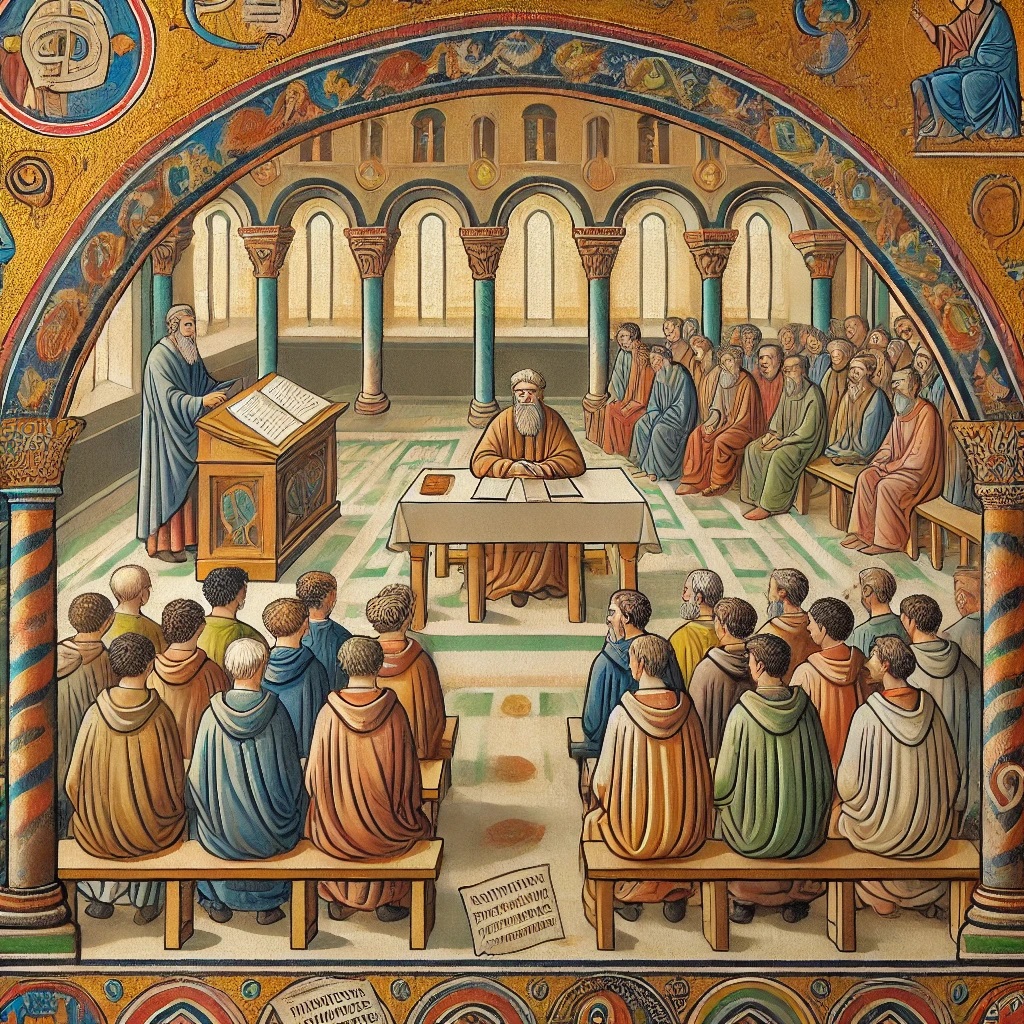The University of Bologna
The birth of the world's first university

The University of Bologna: founded in 1088, Europe's first beacon of secular knowledge. Between law, medicine and the arts, the ‘Alma Mater Studiorum’ lit the fire of culture that still lights up the world today - Image created with IA
At the height of the Middle Ages, the University of Bologna became a beacon of knowledge and innovation that, through its students, continues to contribute to innovation and human progress. Founded in 1088, it is considered the world's first university and the first centre of organised secular knowledge. Its history is inevitably intertwined with that of the medieval Italian municipalities and that of the Germanic Holy Roman Empire, which nominally controlled northern Italy.
The first subject instituted at the university was law, soon followed by medicine, philosophy and, finally, the arts; the university gradually became a multidisciplinary centre of knowledge. Illustrious intellectuals of Italian history, including Mondino de Liuzzi, a famous anatomy scholar, Francesco Petrarch, the father of Italian humanism, and Dante Alighieri, the greatest poet in Italian history, stood among its desks.
Unlike today, there was no compact university campus, but the university was a living network of lecturers and classrooms scattered across squares and homes, and its students gathered in guilds called nations based on geographical origin. The young students who came from all over Europe dictated the rules of the game and governed the university, elected the rectors and even decided the remuneration of lecturers: a university model that would be extremely unusual today.
Traditionally, the jurist Irnerio is considered the founder of the university, which was founded with the aim of studying Roman law and Justinian's Corpus Iuris Civilis. This marked the first scientific approach to the study of law, fundamental to laying the foundations of modern jurisprudence and elevating Bologna to the greatest centre of study in Europe at the time.
The University of Bologna represents the spark that lit the fire of knowledge in Europe. After it, other universities sprang up from Padua to Paris, and the Bologna model was imitated everywhere, bringing with it the idea of building an organised international community of knowledge that still survives today and stands as a bulwark of humanity as a whole.
Paolo Rosso. L'università nell'Italia medievale: Cultura e politica. Carocci Editore, Roma. 2021
Sito: Paul F. Grendler “The University of Bologna, the City, and the Papacy.” Renaissance Studies 13, no. 4 (1999), jstor.com 475–85 (consultato dicembre 2024)
2025-05-15
Francesco Toniatti
